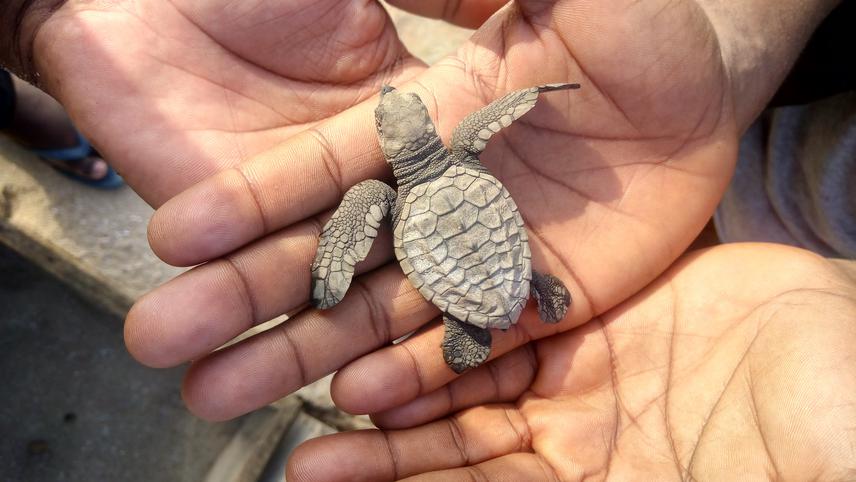Agyemang Opoku
The effects of COVID-19 pandemic extend to global biodiversity and its protection. Due to the pandemic, the conservation sector has experienced setback in field surveillance activities, loss of income, among others.

Baby Olive ridley (Lepidochelys olivacea). ©One World One Sea_ACI
With the ban on travel and tourism halted to curtail the spread of COVID-19, community-based sea turtle conservation initiatives that rely on ecotourism especially in developing countries are grappling to safeguard nesting females and hatchlings. However, in Ghana, Ashanti Conservation Initiative, a community-based conservation organization is quite anxious about its capacities to protect threatened sea turtles (Olive Ridley, Green Turtle, Leatherback) that breeds along the 23km stretch of beach containing three critical nesting sites (including the target communities of Cape Three Points, Beyin, and Akwidaa) in the Western Region during the 2021/2022 nesting season.
The aim of this project is to (1) Increase the awareness and empower local communities to curtail the spread of COVID-19 and support the rehabilitation of key marine turtles nesting sites in the Western region of Ghana and (2) Ensure continuous protection of the nesting population of marine turtles and their key habitats from both natural and anthropogenic threats. The information gathered from this project will provide valuable insight into the relative abundance per species, and off-sea distribution and diversity of sea turtles and an indication of threats encountered by the species at nesting sites. As such, these findings will guide the future deployment of conservation efforts to where it is needed the most. Additionally, through the “facemask for nest” approach, the project team will contribute to curtail the spread of COVID-19 pandemic in Ghana by distributing at least 1000 reusable facemasks and 100 bottles of 100 ml hand sanitizers to local fishermen. This project therefore represents a glimmer of hope that will enable Ashanti Conservation Initiative not only to support communities directly affected by COVID-19 but more importantly, provide continuous protection to marine turtles nesting in critical nesting sites in Ghana.